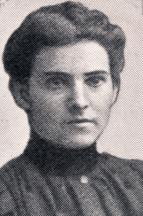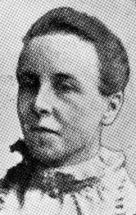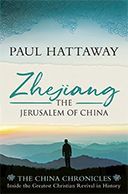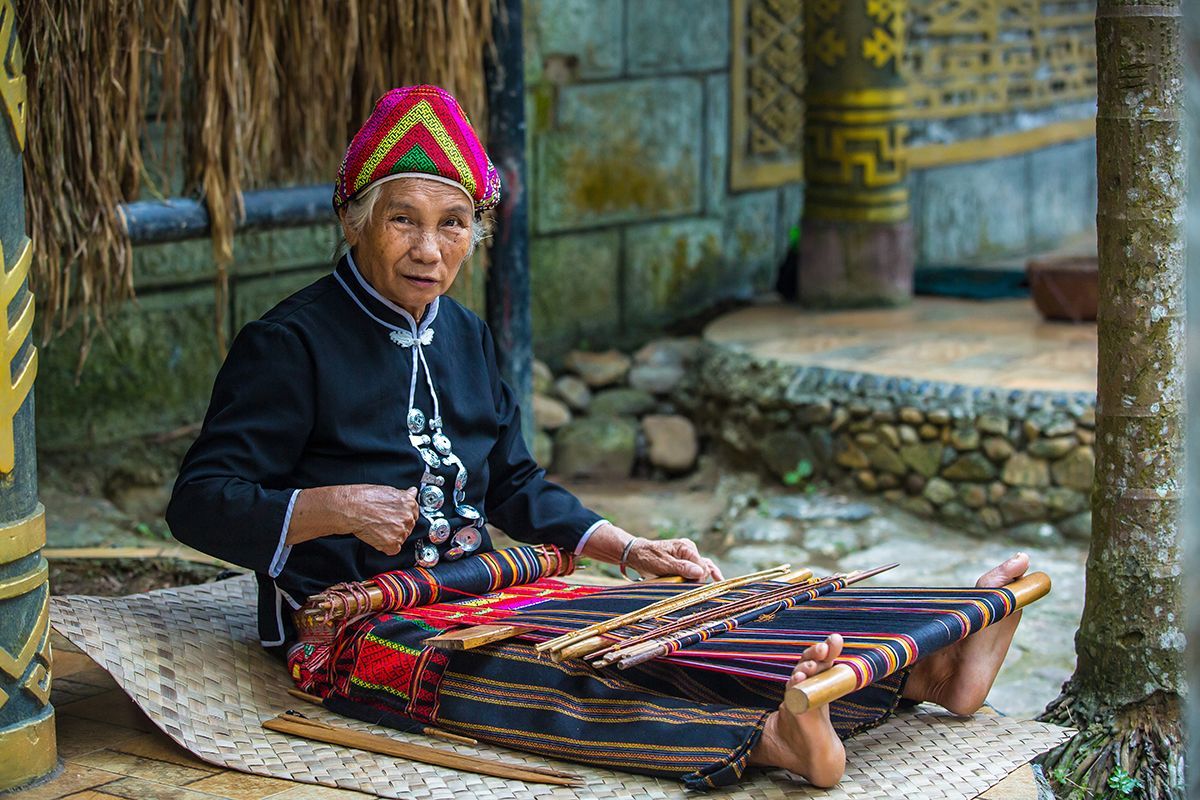The Boxer Rebellion (1900)
The Boxer Rebellion in Zhejiang
Overall, Zhejiang suffered less Boxer persecution in 1900 than did China's northern provinces, but while most of the missionaries made it to the safety of the coast, many Chinese believers suffered loss of property and a few were killed.
The Christians in Wenzhou reportedly faced "fierce and bitter persecution. One evangelist was murdered, and others suffered serious injuries, as well as loss of house and home."[1] Meanwhile, in and around the large city of Ningbo, "over 400 families of Christians and inquirers suffered property loss, many being stripped of all their possessions. Their lives were threatened, and dozens of them lived in mountain caves to escape violence. Some died from the fright and hardship of those months, but only one was actually killed."[2]
A Christian man named Sai Enba was over 60 years old at the time of the Boxer attacks. He was a preacher and a man of prayer. The Boxers threatened Sai with death, and when he attempted to escape down the river he found the way blocked. That evening, one of the Boxer chiefs went into a demonic trance and declared that the spirits demanded a human sacrifice, so
"They went and took old Sai Enba. They carried him to a quiet temple, and, first of all, tried to make him worship the idols. This he refused to do, and they said he must die. He asked time for prayer; but before he had finished they began cutting at his neck with their blunt swords. The murderers were afterwards heard to say that he was still praying when his head was half severed from his body."[3]
Missionary Martyrs
David and Agnes Thompson and their two sons were martyred for Christ in 1900.
Although most Christians in Zhejiang survived the Boxer onslaught with their lives intact, a group of foreign missionaries located far inland were unable to flee. Their courageous testimonies were an inspiration to Christians throughout the province and around the world.
The city of Quzhou is located in western Zhejiang, approximately 62 miles (100 km) from the border with Jiangxi Province. The CIM commenced work there in 1875, and by the dawn of the twentieth century a small church had been established. In the summer of 1900, Quzhou was home to three single female missionaries plus the Thompson family—consisting of David and Agnes Thompson and their two sons, Edwin (six) and Sidney (two).
David Thompson was born in Scotland in 1854. He met Christ at the age of 19 and sailed for China when he was 26. In 1885 he married Agnes Dowman and later moved to Quzhou, where the couple operated a medical dispensary and shared the gospel with thousands of people. Every patient received a gospel tract, and all who wanted to know more about Jesus were visited by a local Chinese evangelist. After six years of hard work and perseverance, the Thompsons had baptized 62 believers.
Agnes was busy raising her two boys, but she also led a twice-weekly meeting attended by 80 women. When news of the Boxer atrocities in other parts of China reached Quzhou, the missionaries considered fleeing for the coast, before deciding it was safer to remain where they were. On July 20, the day before his death, David Thompson wrote:
"I know not what to say or think; everything up here is growing worse. There are thousands of people taking refuge in the city, and the rebels are gathering now in a body.... We hear all kinds of evil reports, which make us fear, but by His grace we are able to rise above all, and take hold of our God and Savior. As yet we do not see our way clear to move, for if we leave without a very strong escort we shall be robbed; so we will just 'stand still and see the salvation of God.' Pray for us… Now I will close; and God, our Father, take care of us, or take us. His will be done."[4]
The local magistrate in Quzhou, a man named Wu, sincerely assured the missionaries that he would protect them, but on July 21 a mob of enraged locals seized the magistrate, along with his family members and servants, and slaughtered them—31 people in all.
That morning, the mission home was attacked by a similar crowd of frezied people. The Thompsons escaped, but when they raced to the military official's residence for protection they were rejected. With their hopes dashed, the Thompson family
"turned away, sick at heart, to face the cruel mob awaiting them. These, taking their cue from the officials, at once rushed upon Mr. Thompson, dragged him out on the street...and stabbed him to death with knives and tridents, his body being covered with wounds. One of the children was then killed in the same way, and the mother pleaded in vain for the life of her second child. The response of the mob was to dash the child on the hard stones, and stab him to death before her eyes, and then she herself was cruelly murdered."[5]

Josephine Desmond.
Josephine Desmond was born in West Newton, Massachusetts, in 1867. Her parents were staunch Catholic immigrants from Ireland. While attending a Christian school, Josephine entered into a personal relationship with Jesus Christ. She received a call to missions while attending the Moody Bible Institute in Chicago, and after serving two years as a missionary among a Native American tribe in South Dakota, Desmond applied to join the CIM.
She finally departed for China in 1898, and was stationed in remote western Zhejiang Province. In one of her last letters, dated June 6, 1900, Desmond wrote: "I have been to several of the outstations this spring.... The people came in crowds and listened well. In one place an old woman believed from the first and stayed with us until she had learned a prayer. It is such a joy to find the 'other sheep' in these out-of-the-way places."[6]
The 33-year-old Josephine Desmond was slaughtered alongside the Thompsons on the streets of Quzhou on July 21, 1900. She had served in China for just 18 months.
Etta Manchester and Edith Sherwood.
Etta Manchester was born into a God-fearing family at Edmeston, New York, in 1871. The process of knowing Christ was a gradual one for Etta. It wasn't until she was 19 that she definitely knew she had passed from spiritual death to life.
The only truly worthwhile career Etta could think of pursuing was one spent proclaiming the gospel among people who had never heard it before. She applied to the CIM, and ultimately sailed for China in 1895, ending up in the town of Quzhou. Manchester was the type of person who made friends easily, and it was said of her: "She loved the people, and, having got on well with the language, constantly spent weeks itinerating from village to village. Many women were brought to Christ, and there were many inquirers, baptisms, and great encouragement in the work all around."[7]
In the spring of 1900, Etta received a letter telling of her father's failing health, and she was making plans to return to America when the Boxer attacks commenced.
Edith Sherwood was born in England in 1854, and was 17 years older than Etta Manchester. From the start of her life Edith seemed to love the Lord with all her heart, mind and strength, and as a schoolgirl she actively shared her faith with others. After leaving school, she worked among the sick and poor in north London, before joining the Thompsons at their west Zhejiang mission in 1893.
Although she commenced her missionary career at the relatively late age of nearly 40, Sherwood played a key role at Quzhou. She decided it was disadvantageous for missionaries to live in walled compounds separated from the people they had come to reach, so she rented a small house in the middle of a busy neighbourhood, "and as she looked out upon these from her balcony, she prayed and longed for the salvation of the people. She visited freely among them, and was always well received, and for them she was called to lay down her life."[8]
Etta Manchester and Edith Sherwood lived in the north of Quzhou. At about noon on July 21, a mob suddenly invaded their home and the intruders began to plunder whatever they could lay their hands on. The women tried to escape but were discovered and severely wounded. Etta and Edith somehow managed to pull themselves up and hid on a neighbor's property for the next two days. Under intense pressure, the neighbors finally decided they could not sacrifice their lives to protect the missionaries, and they handed them over on July 23. The mob "rushed upon them from all quarters, pushed and dragged them till...they were stabbed to death, and their dead bodies dragged up and flung into the chapel."[9]
Edith Sherwood and Etta Manchester had gone to receive their eternal reward, having given their all to God and to China.
George and Etta Ward.
Raised in a wealthy English family, George Ward found Christ in 1890 during a meeting at the London YMCA. From the start the fruit of his salvation expressed itself in good works, and before long he was burdened by the needs of the mission field. Ward applied to the CIM, offering to meet all of his own expenses if the board accepted him. He accompanied the Thompsons to China in 1893, and after a time of language study he settled at Changshan in western Zhejiang.
Etta Fuller hailed from the American state of Iowa. She was orphaned at an early age when her parents passed away, but she found Christ at the age of 12 and later attended the Minneapolis Training Institute, departing for Zhejiang Province as a missionary in 1894. For the first three years she worked at Changshan, where her inner charm and beauty attracted the interest of George Ward. After their marriage in 1897 the Wards experienced a surge in their work, and in two years the number of Christians in Changshan doubled. In 1899 the arrival of a baby boy, Herbert, added to their joy.
On July 20, 1900, a friendly local magistrate advised George Ward to flee, for he could no longer guarantee the family's protection. Ward thought he should remain at his post, but made arrangements for his wife, five-month-old son Herbert, and single missionary Emma Thirgood to leave for the coast the next morning. Ward didn't believe there was any serious danger, and promised his wife that if an attack on the city was launched he would leave immediately.
Etta Ward, her little son Herbert, and Emma Thirgood left Changshan by boat on the afternoon of July 21. By evening they had only managed to travel about 10 miles (16 km) from Changshan when they looked back and saw a red glow in the sky above the town. They assumed the Boxers had arrived and were burning the city so they proceeded toward Quzhou, arriving at dawn the following day. The city was in an uproar due to the massacre of the Thompson family and other missionaries, and the boatmen refused to take the two women and child any further. Taking the missionaries' baggage, they threw it onto the river bank, and ordered them to get off the vessel.
The besieged trop waited at the water's edge for a long time, until a boatman offered to take them to Hangzhou. They were relieved, but as they placed their luggage on the boat the same mob that had viciously killed the Thompsons arrived at the riverbank. Some of the men demanded money, at which Etta Ward took off her wedding ring and offered it to her persecutors. The leader snatched it from her and sneered, "We want your life, not your gold rings." Etta was suddenly
"stabbed in the arm, and with a push she fell on her side. The crowd then seemed to fade from her sight, and all she saw was her babe needing to be fed from her breast, and drawing the helpless infant to her she pressed it to her bosom. The fiends then stabbed mother and child together, and with the next blow severed the mother's head from her shoulders, and so ended their sufferings together."[10]
George Ward, meanwhile, had escaped on foot with a Chinese evangelist, and a servant named Li Yun. Travelling along small trails in an effort to escape detection, the trio were untroubled until the following afternoon, when they stopped at a village about 5 miles (8 km) from the city. When a hostile crowd surrounded them, Ward pushed past the mob and ran along a path, only to find that it came to a dead end at a pond. His assailants laughed at him as he returned, then
"they set upon and beat Ward and his servant to death with sticks and clubs, and left the evangelist on the ground, also supposing him to be dead. He was not, however, even insensible, but saw all that was going on, and in the night crawled to a place of safety, and afterwards recovered."[11]

Emma Thirgood.
Emma Thirgood was a much-loved English lady who from the time she was a young girl displayed a keen interest in spiritual things. Later, as a Sunday school teacher, she spent much time making sure each child under her care knew what it meant to be a born-again Christian. After gaining a passion for missions, Thirgood sailed to China in 1889. A short time later she told her family: "I feel I must write you a few lines to tell you how happy I am, and what great things the Lord has done for me. Is it not wonderful how he teaches us in China?"[12]
The initial excitement of life on the mission field wore off, however, and the constant exertions and stress of being a foreign woman in a strange land began to take a toll on Thirgood's health. By 1896, after seven years in China, she suffered a physical and emotional breakdown and returned to England where she was described as "at the point of death."[13] After resting for two-and-a-half years, Thirgood was given a clean bill of health and returned to Zhejiang refreshed and ready for the challenge. On the final Saturday before departing England she said, "My heart is full of praise to the Lord for having, after two-and-a-half years of waiting, so strengthened me that, contrary to the expectations of my friends, I am now able to return to the work I love."[14]
Emma watched in horror as the ruthless mob stabbed Etta and Herbert Ward to death. Seeing all this, "she knew there was no escape for her, and, kneeling in prayer, committed her soul to God. While in this attitude she received her death wounds, and thus obtained release from her cruel tormentors."[15]
The horrific slaughter of so many missionaries associated with the CIM was a devastating blow. Hudson Taylor had personally recruited and sent many of the workers to China. His health had been poor for some years, but the Boxer atrocities caused him deep grief, and he received his own call to heaven in 1905.
© This article is an extract from Paul Hattaway's book 'Zhejiang: The Jerusalem of China'. You can order this or any of The China Chronicles books and e-books from our online bookstore.
1. Walter B. Sloan, "The Marks of Jesus," China's Millions (October 1900), p. 155.
2. Luella Miner, China's Book of Martyrs: A Record of Heroic Martyrdoms and Marvelous Deliverances of Chinese Christians During the Summer of 1900 (Philadelphia, PA: Westminster Press, 1903), p. 420.
3. Miner, China's Book of Martyrs, p. 421.
4. "The Day Before the Massacre at Kiu-chau Fu," China's Millions (November 1900), p. 150.
5. Ralph Coventry Forsyth (ed.), The China Martyrs of 1900: A Complete Roll of the Christian Heroes Martyred in China in 1900, with Narratives of Survivors (London: The Religious Tract Society, 1904), p. 92.
6. Marshall Broomhall (ed.), Martyred Missionaries of the China Inland Mission: With a Record of the Perils and Sufferings of Some Who Escaped (London: Morgan & Scott, 1901), p. 189.
7. Forsyth, The China Martyrs of 1900, p. 471.
8. Forsyth, The China Martyrs of 1900, p. 471.
9. Forsyth, The China Martyrs of 1900, pp. 92-3.
10. Forsyth, The China Martyrs of 1900, p. 94.
11. Forsyth, The China Martyrs of 1900, p. 95.
12. Broomhall, Martyred Missionaries of the China Inland Mission, p. 196.
13. Broomhall, Martyred Missionaries of the China Inland Mission, p. 197.
14. Broomhall, Martyred Missionaries of the China Inland Mission, p. 196.
15. Forsyth, The China Martyrs of 1900, p. 94.





